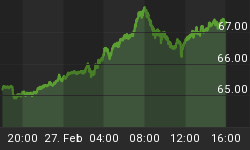For years, Americans have been able to pay for enormous trade deficits by exchanging IOU's for imported consumer goods. Unfortunately for foreign creditors, a substantial percentage of those IOU's have recently taken the form of mortgaged backed securities.
Sporting higher yields than Treasury bonds, investment grade ratings from reputable agencies, and juicy commissions for the investment banks that packaged them, these structured mortgage bonds have quickly become America's greatest export. Ironically, amid all the recent hoopla about defective Chinese exports, America has proved that when it comes to flooding the world with shoddy merchandise, nobody beats the good old USA.
This week, several of Wall Street's best foreign customers announced staggering losses on the American mortgaged backed securities they had been sold. The fundamental issue underlying these losses is that Americans borrowed more money than they can afford to repay. As initially low teaser rates expire and mortgage defaults increase, foreign lenders are discovering that the residential properties that collateralize the mortgage bonds are not worth anywhere near the loan amounts.
It will not be long before American borrowers come to a similar realization. When they do they will be faced with the shocking reality that all of their home equity is gone -- having disappeared just as quickly as did the paper profits of the Internet stock mania. However, this time around the situation is more dire. Although paper profits have vanished much as they did in 2001, all the mortgage debt, much of it about to get much more expensive to service, still remains.
When American homeowners come to grips with their diminished net worth, the excess consumption that has been the rule over much of the past decade will grind to a halt. If any money is left after making higher ARM payments, homeowners may actually decide to save some to repair their personal balance sheets. As consumer spending collapses, the U.S. economy will plunge into a severe recession, compounding the problems in the housing market and exacerbating the recession.
The last straw will be the value of the U.S. dollar. Already teetering on a precipice, a recession will push it over the edge. As the dollar falls, interest rates and consumer prices will rise even more sharply, compounding the problems for both housing and the economy. In fact, the fear of further dollar declines has been the most important factor in restraining the Fed's ability to cut interest rates. Rather than admit its concern over the dollar, the Fed justifies current policy with assurances that the economy is strong and is not in need of stimulative rate cuts. In Jack Nicholson fashion, since Bernanke feels investors can not handle the truth he feeds them a lie instead.
As more of our nation's creditors finally realize that they have been duped, the credit well fueling American consumption will run dry. Foreign lenders will simply refuse to accept our IOU's as payment for their merchandise. Lacking in savings and productive capacity, we will be forced to accept dramatic reductions in our standard of living as a result.
Though our creditors will finally be forced to realize some losses on their prior investments, they will no longer bear the burden of subsidizing the U.S. economy. With diminished competition from Americans, foreign consumers will finally gain the upper hand. Goods previously too expensive for citizens of non-dollar economies will suddenly become affordable. Savings currently squandered on American consumption will be freed up to finance productive investment at home.
Though these positive aspects may be lost in the recent synchronized sell off in global stocks, foreign markets will soon diverge from ours. As the American caboose is decoupled from the global economic gravy train, the rest of the cars will move that much faster without all that dead weight slowing them down.
For a more in depth analysis of the tenuous position of the Americana economy and U.S. dollar denominated investments, read my new book "Crash Proof: How to Profit from the Coming Economic Collapse." Click here to order a copy today.
More importantly, don't wait for reality to set in. Protect your wealth and preserve your purchasing power before it's too late. Discover the best way to buy gold at www.goldyoucanfold.com, download my free research report on the powerful case for investing in foreign equities available at www.researchreportone.com, and subscribe to my free, on-line investment newsletter at http://www.europac.net/newsletter/newsletter.asp.















